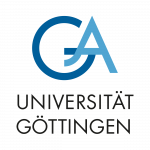- # Infoveranstaltungen intern
- # Ordnungsänderungen
- # Qualitätsrunden
- # Schon gewusst?
- Absolventenfeier
- Allgemein
- Anmeldezeiten Module
- Auslandsstudium
- Bachelor
- FlexNow
- Infos der Fachgruppe
- Klausureinsicht/Prüfungen
- Master
- Master KliPPT
- O-Phase für Erstsemester
- Pb-Stunden
- Praktika & Jobs
- Prüfungsamt
- Sprechzeiten/Urlaub/Krankheit
- Stundenplan
- Veranstaltung/Vortrag
- Wichtige Infos!
-
Archiv
-
Suche
-
Kontakt
-
Studiengangskoordination
und Fachberatung Psychologie
Dr. Nuria Brinkmann
Sprechzeiten: Die, Mi, Do 9 - 12 Uhr
Tel. +49 551 39 23652
Email Studienbüro Psychologie
Terminvergabe in Stud.IP -
Studiengangskoordination und Studienberatung Master Klinische Psychologie und Psychotherapie
Dipl.-Psych. Cornelia Bernardi-Pritzkow
=> Sprechzeiten
Email Studienbüro Klinische Psychologie und Psychotherapie
Tel. +49 551 39 29262
Terminvergabe in Stud.IP
Archiv des Tages: 24. November 2022
Einladung zu Infogesprächen
Veröffentlicht unter Veranstaltung/Vortrag
Kommentare deaktiviert für Einladung zu Infogesprächen
Bachelor: Modul B.Psy.301 Klausureinsicht
Die Einsicht zu der Klausur für das Modul „B.Psy.301“ erfolgt ausschließlich mit vorheriger Terminvergabe durch Frau Schneider am Montag, den 05.12.2022 von 7:30 – 11:00 Uhr in Raum 2.102 Falls Sie die Klausureinsicht wahrnehmen möchten, bitten wir Sie, sich spätestens … Weiterlesen
Veröffentlicht unter Klausureinsicht/Prüfungen
Kommentare deaktiviert für Bachelor: Modul B.Psy.301 Klausureinsicht
WSPP-Informationsveranstaltung am 10.01.2023
service.wspp@uni-goettingen.de wspp.@uni-goettingen.de
Veröffentlicht unter # Infoveranstaltungen intern
Kommentare deaktiviert für WSPP-Informationsveranstaltung am 10.01.2023
Einladung zum Kolloquium
Dear all, You are invited to two talks that will take place in early December. On December 1st, Mariel Goddu will give a talk at CogSci colloquium (at 12:15, Waldweg 26 Room 6.103). She will talk about causal reasoning. Title & Abstract will be forwarded … Weiterlesen
Veröffentlicht unter Veranstaltung/Vortrag
Kommentare deaktiviert für Einladung zum Kolloquium

